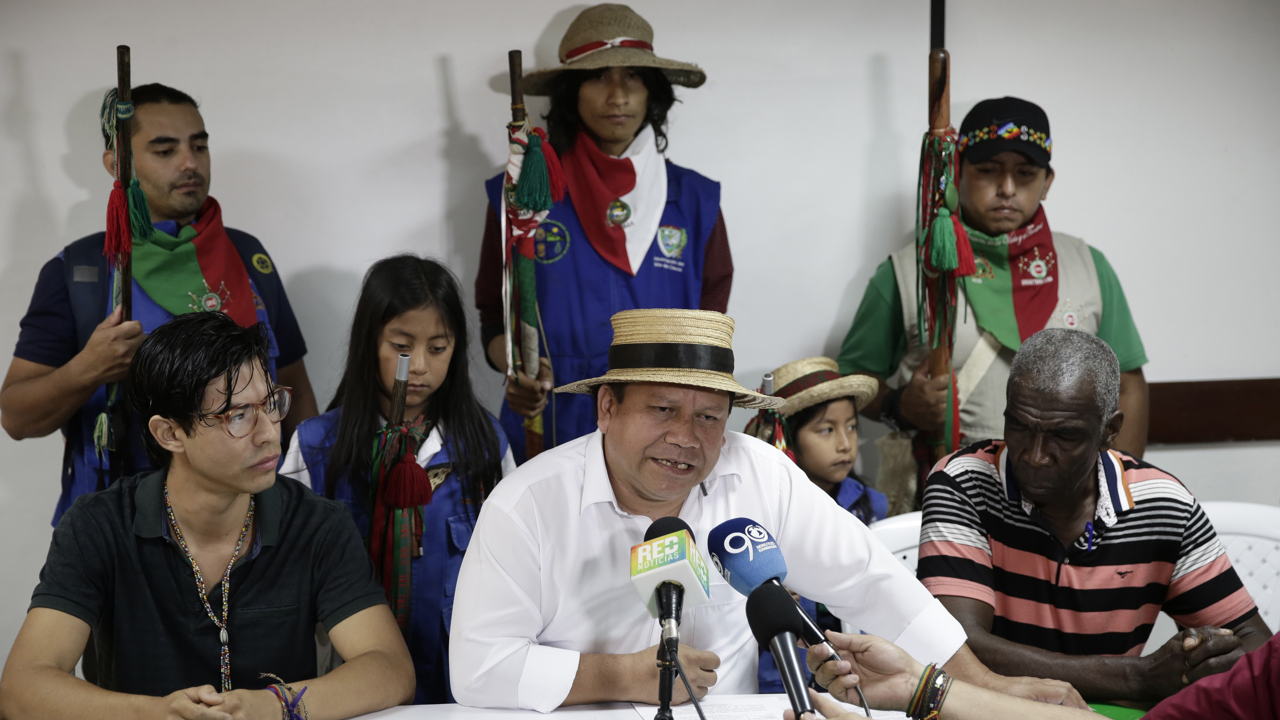First modification:
The elected president of Colombia, Gustavo Petro, has put the indigenous communities of his country at the forefront. This Tuesday, he announced that the indigenous activist Leonor Zalabata Torres, from the Arhuaca community, will be the country’s ambassador to the United Nations in New York and appointed two other indigenous people to her administrative team.
This Tuesday, President-elect Gustavo Petro announced the nomination of Leonor Zalabata Torres, or Guneywya, her original name in the Arhuaca culture, an indigenous defender of the rights of women and nature, as ambassador to the United Nations.
It is the first time in the country that an indigenous woman has been nominated ambassador to the UN and has access to a diplomatic post of such importance.
Each country can nominate a permanent representative to the United Nations in New York. Although they can nominate several in the various branches of the organization, the most important is the one assigned to the one in New York.
“Colombian President Gustavo Petro applies the Political Constitution of 1991 by recognizing the multi-ethnic and multicultural country, and reaffirms the guarantee of a Social State of Rights. Thank you for the designations and giving us the participation of the Indigenous Peoples”, Torres reacted on Twitter.
The president of Colombia @petrogustavo applies the Political Constitution of 91 by recognizing the multiethnic and multicultural country, and reaffirms the guarantee of a Social State of Rights. Thank you for the appointments and giving us the participation of the Indigenous Peoples. https://t.co/OXrHbG6XIy
– Leonor Zalabata (@LeonorZalabata) July 19, 2022
Leonor Zalabata Torres, from the Arhuaco people, defended the rights of the indigenous populations of the Sierra Nevada de Santa Marta, where her community lives, for more than three decades. She played a key role in dialogue with the irregular armed groups that settled in the Sierra Nevada de Santa Marta.
Torres has led the Tayrona Indigenous Confederation and has been Commissioner for Human Rights of Indigenous Peoples in Colombia, which earned her the Anna Lindh Award from the Swedish Social Democratic Party for her defense of indigenous rights in Latin America in 2007. She was also chosen in this position for her fight for Colombian women to have a more active role in society.
Two other indigenous people in key positions in the Petro government
At least two other indigenous leaders will hold positions in the Government of Gustavo Petro, which will begin on August 7.
Patricia Tobón, from the Embera people, will take over the direction of the Unit for Comprehensive Care and Reparation for Victims, which works to assist and repair the victims of the conflict in Colombia. Indigenous communities were subjected to particular violence during the armed conflict. Tobón’s nomination could be the opportunity for these communities to be more taken into account in this reparation process.
Tobón was a member of the Truth Commission, which presented on June 28 the long-awaited Final report that recounts the armed conflict and offers an explanation of its causes. According to the organization, in the Commission, Tobón accompanied and guided “the actions of the Directorate of Ethnic Peoples and the Directorate of Social Dialogue, specifically with regard to the objective of contributions for Non-Repetition.”
Tobón is a lawyer specializing in constitutional law. She has been working for more than 15 years with indigenous communities, especially in relation to the defense of human rights.
Finally, sociologist Giovani Yule, a member of the Regional Indigenous Council of Cauca, will be the new director of the Land Restitution Unit, which works to return their land to the peasants and ethnic communities that were victims of the violence of the conflict.

This nomination is also of greater importance, both socially and symbolically, since indigenous people have historically been displaced from their ancestral territories, dismissals that continue to occur today. The designation of an indigenous person in this position empowers the struggle for the lands of these peoples.
“An honor for our millennial peoples to be represented by Leonor Zalabata, Patricia Tobón and fellow CRIC Giovani Yule,” said senator-elect Aida Quilcué, who was elected by the special indigenous constituency in the legislative elections last March.
Gustavo Petro will succeed Iván Duque as president of Colombia on August 7. The elected president promised to work for greater equality and parity within his government. Among other things, he said he wanted to create a Ministry of Equality, which would be occupied by the elected vice president, Francia Márquez, and promote a tax reform.
Gustavo Petro’s program also emphasizes the protection of ecosystems and natural resources.
Petro continues trying to put together a cabinet of national unity amid the reluctance of a sector of the left that demands more participation in the Government. So far, he has appointed 7 of the 18 cabinet ministers, but the heads of several important portfolios such as defense, interior, justice and trade are yet to be appointed.
with EFE






![[Img #74675]](https://thelatestnews.world/wp-content/uploads/2024/12/They-discover-a-new-class-of-X-ray-sources-in-the-150x150.jpg)








Add Comment